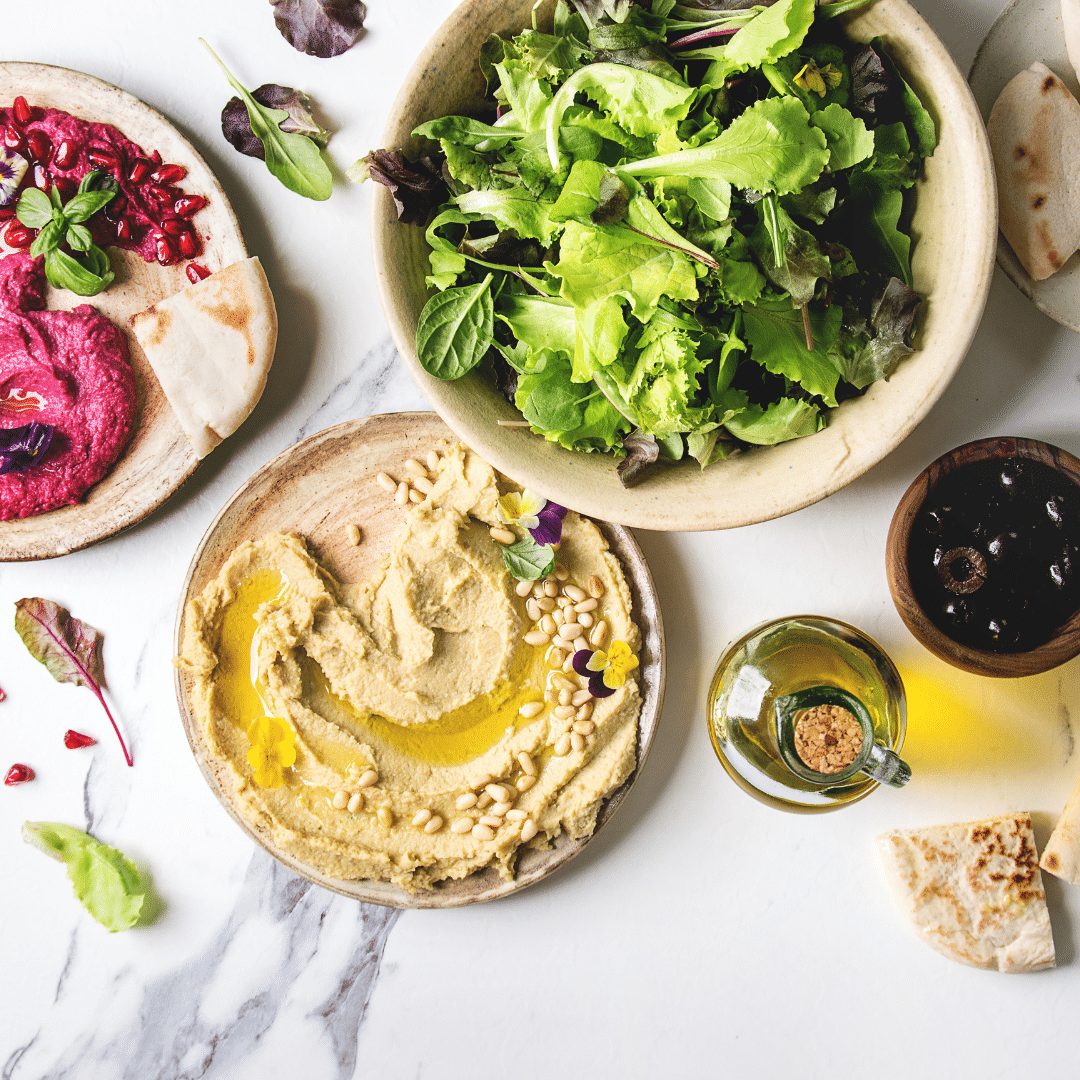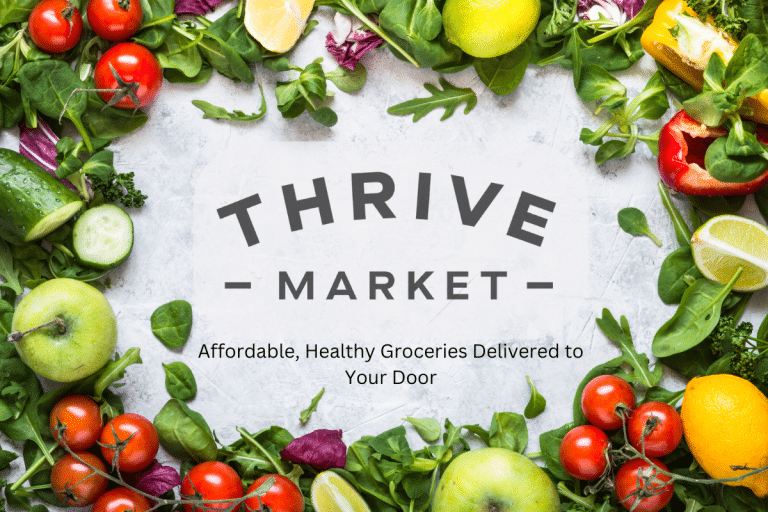Mediterranean Plant-Based Diet: A Complete Guide for Optimal Health
Want more energy, sharper focus, and a body that feels younger? You do not need fancy supplements or extreme diets. Just delicious, natural food.
Imagine dipping warm, garlicky hummus into golden olive oil, biting into roasted vegetables bursting with flavor, or enjoying a hearty grain bowl that keeps you full for hours. This is the Mediterranean plant-based lifestyle.

Note: This post contains affiliate links. I may earn a small commission at no extra cost to you.
In the sun-soaked villages of the Mediterranean, people routinely live into their nineties with strong bodies and sharp minds. They have some of the lowest rates of heart disease, diabetes, and memory loss in the world. Their secret is a diet packed with vibrant plants, healthy fats, and time-tested wisdom.
Science now proves why this way of eating works.

- Reduces inflammation and supports joint health
- Protects your heart by lowering blood pressure and cholesterol
- Boosts brain function, improving memory and focus
The best part is that it is simple. There is no calorie counting, no stress, just real, wholesome food optimized for modern health. You will feel the difference in just a few weeks.
What Makes This Approach Different?
This is not about restriction or complicated rules. It is about abundance.
The Mediterranean diet is already one of the healthiest ways to eat, but this version takes it further. It keeps the most powerful elements, such as fresh vegetables, fiber-rich legumes, whole grains, and heart-healthy fats, while removing foods that do not contribute to longevity.

While traditional Mediterranean diets include some fish and meat, the real benefits come from plant-based foods. Research shows that plants provide the most protection against heart disease, inflammation, and cognitive decline. This variation maximizes those benefits while keeping the rich flavors and variety that make Mediterranean food so satisfying.
Benefits of Following a Mediterranean Plant-Based Diet
Combining Mediterranean and plant-based eating patterns creates a powerful approach to long-term health. According to the Mayo Clinic, the Mediterranean diet is recognized by the World Health Organization as a healthy eating pattern and is one of the dietary approaches most recommended by American nutrition experts. Studies have shown that following this way of eating is particularly beneficial for cardiovascular health, with research linking it to lower risk factors for heart disease, including reduced cholesterol and blood pressure.
Here are the key benefits of following this way of eating.
Supports Heart Health
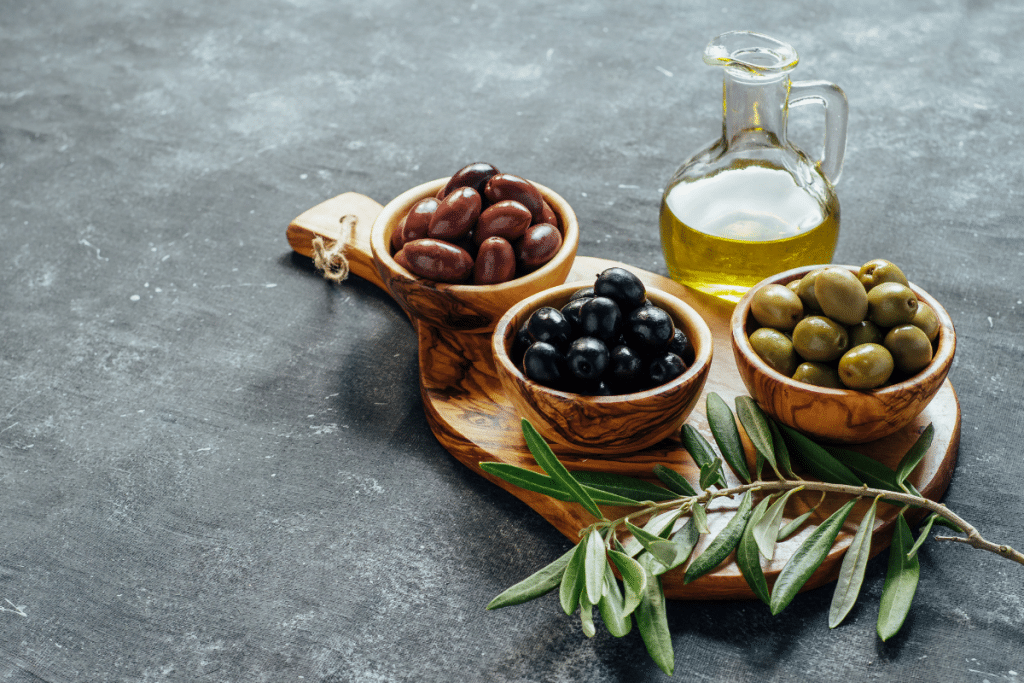
Omega three fatty acids from nuts, olive oil, and fiber from legumes and whole grains help protect the heart. Studies show this eating pattern can lower blood pressure by an average of six to seven points and reduce bad cholesterol levels by up to 15 percent.
Improves Brain Function
Antioxidant-rich foods, especially leafy greens and berries, support cognitive health as we age. Regularly eating these foods is linked to a 30 to 35 percent lower risk of cognitive decline.
Helps with Weight Management
High-fiber plant foods and healthy fats help control appetite naturally. People following this way of eating typically maintain a healthy weight without counting calories.
Reduces Inflammation
A diet rich in antioxidants, healthy fats, and fiber helps lower inflammation, reduce joint pain, improve digestion, and support healthy skin.
Better for the Environment
This eating pattern reduces carbon footprint by up to 73 percent compared to a typical Western diet, making it a sustainable choice for both health and the planet.
Essential Components of the Mediterranean Plant-Based Diet
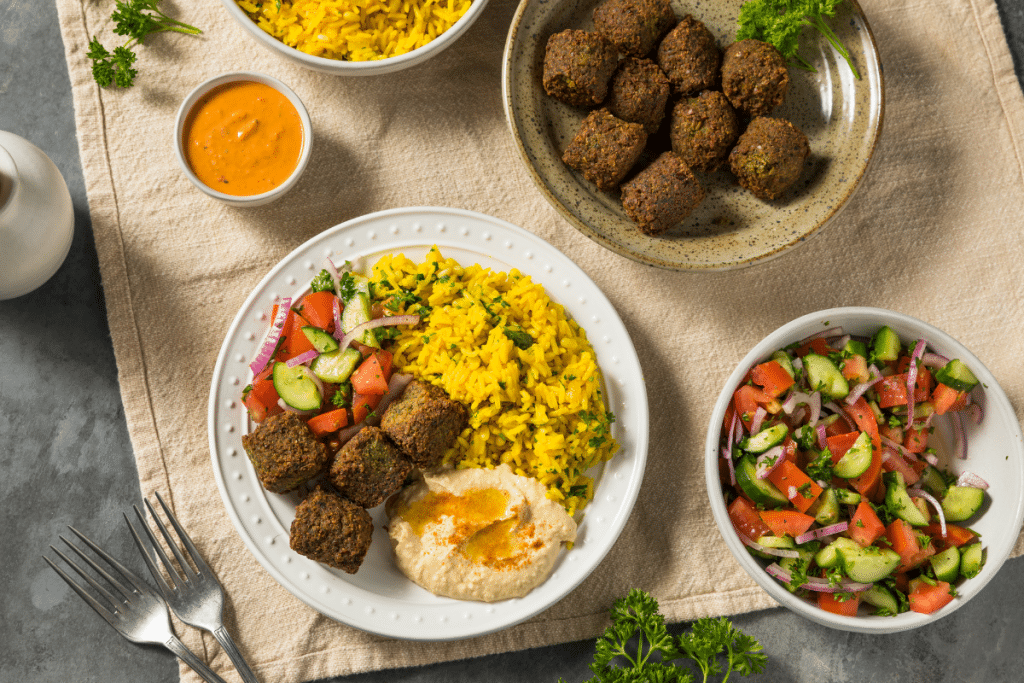
This eating pattern’s foundation rests on three key pillars: plant proteins, healthy fats, and whole grains. Each component is vital in creating satisfying, nutritious meals that support long-term health.
Plant-Based Proteins
Legumes serve as the protein powerhouse in Mediterranean cuisine. Chickpeas transform into creamy hummus or crispy falafel, providing 15 grams of protein per cup. For more protein-rich options, check out 15 Game-Changing Plant-Based Proteins You Must Try (Healthy, Delicious, and Affordable!) Lentils add heartiness to soups and stews while delivering 18 grams of protein per cup. White beans excel in Italian dishes, offering protein and a buttery texture that makes them perfect for spreads and pasta dishes.
Heart-Healthy Fats
Extra virgin olive oil is the cornerstone of Mediterranean cooking, offering powerful antioxidants and monounsaturated fats. Drizzle it over vegetables or use it for light sautéing. Complement this with walnuts (rich in omega-3s), almonds (high in vitamin E), and seeds like sesame and pine nuts. Avocados round out the healthy fat profile with their creamy texture and heart-protective properties.
Nutrient-Rich Whole Grains
Ancient grains bring both nutrition and authentic Mediterranean flavor to your meals. Farro, with its nutty taste, works beautifully in grain bowls and salads. Bulgur wheat creates the perfect base for traditional tabbouleh. Whole grain pasta offers more protein and fiber than refined versions, while quinoa provides all nine essential amino acids, making it a complete protein source.
Mediterranean Plant-Based Diet Meal Plan

Planning meals makes eating easy, effective, and sustainable. Most meals take 30 minutes or less to prepare, making them easily fit into any schedule.
Tips for Success
- Prep vegetables and grains on Sunday for quick meals during the week
- Keep a stocked pantry with Mediterranean staples
- Use fresh herbs to enhance flavor
Breakfast
Start the day with fiber-rich, protein-packed foods that provide lasting energy. Dried figs, crushed walnuts, and a drizzle of honey can transform basic oatmeal into a Mediterranean inspired meal.
Savory breakfast options include:
- A bowl with hummus, cucumber, tomatoes, and olives
- Whole grain toast topped with mashed chickpeas, lemon, and herbs
- Oatmeal with figs and a touch of honey
Lunch
Midday meals focus on colorful vegetables and plant-based proteins. A mason jar Greek salad with quinoa, chickpeas, cucumber, tomatoes, and fresh herbs is easy to prepare ahead of time.
Other simple lunch ideas include:
- Mason jar salads with a quinoa base
- Whole grain wraps with grilled vegetables and hummus
- Lentil soup with Mediterranean spices
Dinner
Evening meals highlight traditional Mediterranean flavors with nourishing ingredients. Grain bowls with farro or quinoa, roasted vegetables, and tahini sauce are satisfying and easy to make.
Quick dinner ideas include:
- Eggplant and chickpea tagine over couscous
- Grain bowls with roasted vegetables and tahini
- Whole grain pasta with sautéed vegetables and fresh herbs
Setting Up Your Mediterranean Plant-Based Kitchen

Getting started becomes much easier (and more affordable) when you know where to shop. While you’ll get fresh produce locally, you can save 25-50% on organic pantry staples through Thrive Market.
Essential Pantry Staples from Thrive Market
Stock up on these high-quality basics:
- Organic extra virgin olive oil (Thrive Market’s organic Greek olive oil offers exceptional value)
- Dried legumes: chickpeas, lentils, and white beans (buy in bulk for savings)
- Whole grains: quinoa, farro, and bulgur wheat
- Raw nuts and seeds: walnuts, almonds, pine nuts, and sesame seeds
- Mediterranean seasonings: oregano, basil, thyme, and rosemary
Fresh Produce Shopping List
Source these locally or from your farmer’s market:
- Leafy greens: spinach, arugula, and kale
- Colorful vegetables: tomatoes, eggplant, bell peppers
- Fresh herbs: basil, parsley, mint
- Garlic and onions
- Seasonal vegetables for roasting
Smart Planning Tips
Make this lifestyle sustainable with these strategies:
- Batch cook legumes and grains on weekends
- Keep Thrive Market pantry staples well-stocked
- Shop local markets for fresh produce weekly
- Prep vegetables in advance for quick meals
Gradual Transition Guide
Start your journey smoothly:
- Begin with familiar Mediterranean dishes like pasta with vegetables
- Stock your Thrive Market pantry gradually to spread out costs
- Add one new plant-based recipe to your rotation weekly
- Keep quick options like hummus and whole grain pita on hand for busy days
Remember: Investing in quality pantry staples from Thrive Market will save money long-term while ensuring you always have the foundations for healthy meals.
Mediterranean Plant-Based Diet Health Benefits
Following a Mediterranean plant-based diet does more than change what you eat. It transforms your health from the inside out. Research shows that this way of eating provides powerful benefits for the heart and brain.
Supports Heart Health

This diet is proven to lower heart disease risk and improve cardiovascular health.
- Lowers blood pressure by up to seven points with potassium-rich vegetables and heart healthy olive oil
- Reduces bad cholesterol by 15 percent due to the high fiber content in legumes and whole grains
- Lowers the risk of heart disease by 42 percent compared to a typical Western diet
Improves Brain Function
The brain thrives on antioxidant-rich foods and healthy fats.
- Memory and focus improve within weeks due to the high levels of omega-three fatty acids from nuts and seeds
- The risk of cognitive decline drops by 35 percent when this way of eating is followed long-term
- Brain inflammation decreases through the combined effects of antioxidants, anti-inflammatory compounds, and healthy fats
These are not just statistics. They reflect real improvements in how the body functions. The best part is that these benefits start from your very first meal.
Making the Mediterranean Plant-Based Diet Work for You
The Mediterranean plant-based diet is a simple and sustainable way to improve long-term health. It combines the best elements of Mediterranean eating with plant-based principles, creating an approach that benefits both personal health and the environment. For a comprehensive guide on using diet to extend your lifespan, see our Plant-Based Diet for Longevity: A Science-Backed Guide to Living Longer Through Food (2025).
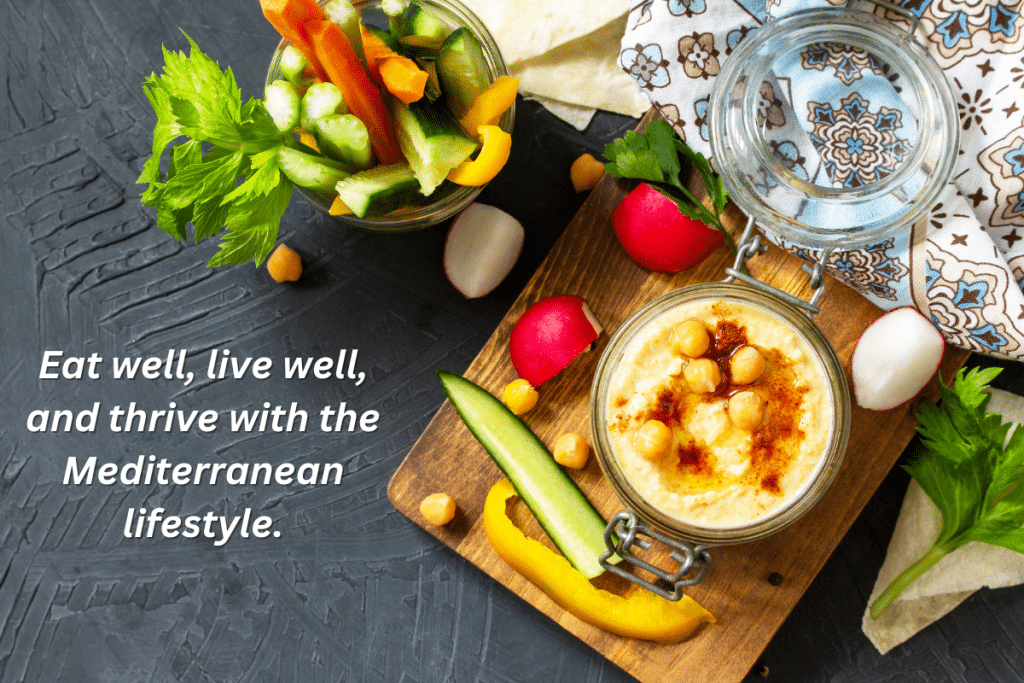
The key is to start gradually. Focus on adding more plant based Mediterranean meals to your routine while keeping the core principles in place. Over time, this way of eating becomes second nature.
Eating well should feel enjoyable, not restrictive. This diet is about variety, flavor, and nourishment. The more you embrace it, the more you will experience the benefits.
🌿 Want to bring the Mediterranean lifestyle to your daily routine?
👉 Grab my FREE 3-Day Life Reset Plan a simple, science-backed routine to boost your energy, improve your mood, and build momentum with plant-powered meals and mindful habits.
Note: This guide is for informational purposes only. Always consult with healthcare professionals before making significant dietary changes or starting new supplement regimens.
